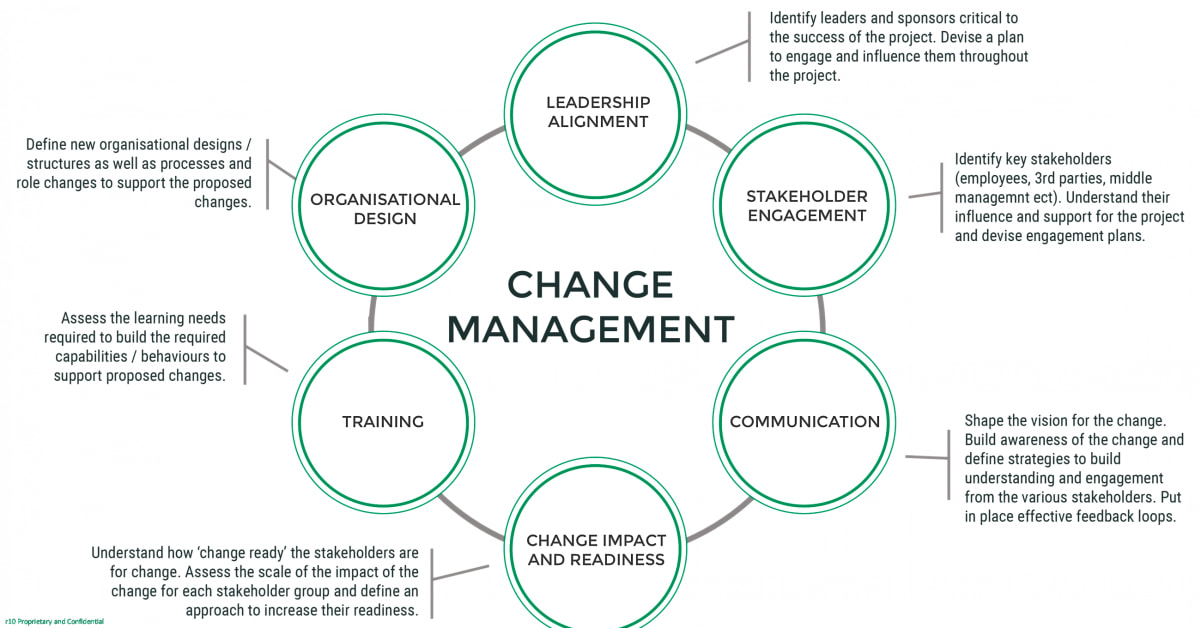Performance management is a crucial aspect of any successful business. It involves the process of setting goals, monitoring progress, and providing feedback to employees in order to improve their performance and contribute to the overall success of the organization. As a beginner, understanding the concept of performance management can seem overwhelming, but with the right guidance, you can navigate through it effectively. In this article, we will provide you with a comprehensive guide to performance management, covering all the essential aspects that you need to know. Whether you are an HR professional or a business owner, this article will help you understand the importance of performance management and how it can benefit your organization. So, let’s dive in and learn more about this critical aspect of business consulting in the human resources field.
Performance management is an essential aspect of business consulting that involves the processes and strategies used to improve the performance of employees and the organization as a whole. It is a continuous cycle of setting goals, monitoring progress, providing feedback, and developing employees to achieve their full potential.
There are various types of performance management, each with its own specific purpose. Goal setting, for instance, involves setting clear and measurable objectives for employees to work towards. This not only helps align individual goals with organizational objectives but also provides a sense of direction for employees.
Performance reviews are another crucial aspect of performance management. These are periodic evaluations of employee performance, where strengths and areas for improvement are identified and discussed. This allows for open communication between managers and employees, leading to improved performance and development.
Employee development is also a key component of performance management. This involves providing opportunities for employees to enhance their skills and knowledge through training, coaching, and mentoring. By investing in employee development, businesses can improve overall performance and retain top talent.
Implementing performance management in your organization can be a challenging task, but there are some tips that can help make it more effective. First, it is important to clearly communicate expectations and goals to employees. This ensures that everyone is on the same page and working towards the same objectives.
It is also crucial to provide regular feedback to employees. This not only helps them understand how they are performing but also allows for adjustments to be made if needed. Additionally, involving employees in the goal-setting process can increase their sense of ownership and motivation to achieve their objectives.
The benefits of using performance management are numerous for businesses. By setting clear goals and regularly monitoring progress, productivity can increase as employees work towards achieving targets. Performance management also leads to improved employee satisfaction as they receive feedback and have opportunities for development.
For example, XYZ company implemented performance management and saw a significant improvement in their sales team’s performance. By setting specific targets and providing regular feedback, the sales team was able to increase their sales by 20% within the first quarter.
However, there are some common misconceptions about performance management that can hinder its effectiveness. One of these is the belief that it is solely the responsibility of managers. In reality, performance management should involve open communication and collaboration between managers and employees.
Another misconception is that performance management only focuses on addressing poor performance. In fact, it can also be used to recognize and reward high performers, leading to increased motivation and retention of top talent.
In conclusion, performance management is a crucial aspect of business consulting that can greatly benefit organizations. By understanding its different types and implementing it effectively, businesses can improve their processes and strategies, leading to increased productivity, employee satisfaction, and business growth.
What is Performance Management?
Performance management is a vital aspect of business consulting that aims to improve overall organizational performance by aligning individual and team goals with business objectives. It involves a systematic approach to monitoring, measuring, and managing employee performance to ensure that they are meeting expectations and contributing to the success of the company.
At its core, performance management is about understanding how well your employees are performing and identifying areas for improvement. This process involves setting clear goals and expectations, providing regular feedback and coaching, and conducting performance evaluations to assess progress and identify development opportunities.
By implementing effective performance management strategies, businesses can optimize their operations, increase productivity, and drive growth. It also helps employees feel valued, engaged, and motivated to perform at their best.
Types of Performance Management
Performance management is a crucial aspect of business consulting, as it involves the process of monitoring and evaluating an employee’s performance to ensure that they are meeting their goals and objectives.
There are various types of performance management methods that businesses can utilize to effectively manage their employees’ performance. These methods include:
- Traditional Performance Appraisal: This method involves setting specific performance goals and evaluating an employee’s performance against those goals at a designated time period.
- 360-Degree Feedback: This method involves gathering feedback from multiple sources, including superiors, peers, and subordinates, to provide a well-rounded evaluation of an employee’s performance.
- MBO (Management by Objectives): This method involves setting specific, measurable, and achievable objectives for each employee, which are then used to evaluate their performance.
Each of these methods has its own advantages and disadvantages, and businesses may choose to use a combination of these methods to create a comprehensive performance management system that works best for their organization.
Debunking Misconceptions
Performance management is often misunderstood and associated with negative connotations. Many people believe that it is solely focused on criticizing and punishing employees for underperformance. However, this is far from the truth. In fact, performance management is a collaborative and positive process that aims to improve employee performance and align it with business goals.
One common misconception is that performance management is a once-a-year activity that only happens during annual performance reviews. In reality, it should be an ongoing process that involves regular feedback, coaching, and goal setting throughout the year.
Another misconception is that performance management is only relevant for large corporations. However, businesses of all sizes can benefit from implementing performance management strategies. By setting clear expectations, providing feedback, and tracking progress, even small businesses can improve their overall performance.
Lastly, some may believe that performance management is only the responsibility of HR professionals. While HR may play a role in facilitating the process, it is ultimately the responsibility of managers and leaders to effectively manage their team’s performance.
Benefits of Performance Management
Performance management is an essential aspect of business consulting that can significantly impact your company’s success. By implementing effective performance management strategies, you can improve the overall performance of your business, increase employee engagement, and achieve your organizational goals.
Improved Employee Productivity and Performance
One of the main benefits of performance management is that it can help improve employee productivity and performance. By setting clear goals and expectations, providing regular feedback and recognition, and offering opportunities for growth and development, employees are more motivated to perform at their best. This leads to increased productivity, better quality work, and ultimately, improved business performance.
Better Communication and Collaboration
Performance management also promotes better communication and collaboration within the workplace. Through regular performance evaluations and feedback sessions, managers and employees can openly discuss any issues or concerns, brainstorm solutions, and work together towards achieving common goals. This not only improves work relationships but also leads to a more cohesive and efficient team.
Identification of Strengths and Weaknesses
By tracking and evaluating employee performance, performance management allows businesses to identify their employees’ strengths and weaknesses. This information can then be used to create personalized development plans, provide targeted training, and assign tasks that align with each employee’s skills and abilities. As a result, employees are more engaged and motivated to contribute their best work to the company.
Increased Employee Engagement
Effective performance management can also lead to increased employee engagement. By involving employees in the goal-setting process, providing regular feedback, and recognizing their contributions, employees feel valued and connected to the company’s success. This leads to higher levels of job satisfaction, lower turnover rates, and a more positive work culture.
In conclusion, performance management is a crucial aspect of business consulting that can positively impact your business in many ways. By implementing effective performance management strategies, you can improve employee productivity and performance, promote better communication and collaboration, identify strengths and weaknesses, and increase employee engagement. This not only benefits your employees but also contributes to the overall success of your business.
Real-Life Examples
Performance management is not just a theoretical concept, but rather an essential tool for businesses to improve their overall operations. Many companies have successfully implemented performance management, leading to significant improvements in their performance and success. Let’s take a look at some real-life examples of companies that have effectively utilized performance management.
Company A: This technology firm used performance management to improve the efficiency of their software development process. By implementing regular performance evaluations and setting achievable goals, the company saw a 20% increase in productivity and a 15% decrease in project timelines.
Company B: This retail company utilized performance management to address high employee turnover rates. Through performance evaluations and feedback, the company was able to identify and address issues within their management structure, resulting in a 30% decrease in turnover and an increase in employee satisfaction.
Company C: This consulting firm utilized performance management to improve their client satisfaction rates. By setting measurable goals and regularly reviewing progress, the company saw a significant increase in positive client feedback and an increase in repeat business.
In conclusion, performance management is an essential tool for businesses looking to improve their processes and strategies. By understanding the concept, exploring different types, and implementing it effectively, you can see numerous benefits for your organization. We hope this article has provided valuable insight into the world of performance management and how it can benefit your business.





